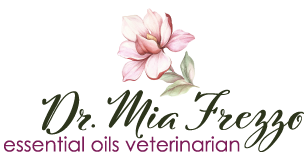This month our blog focuses on probiotics and prebiotics. Prebiotics promote good bacteria, and probiotics are the good bacteria. Prebiotics and probiotics work together to improve not only gastrointestinal health, but overall optimal health.
Improving Gut Health with Probiotic and Prebiotic Supplements What is a healthy gut microbiome? Stretching over 25 feet long with total surface area equivalent to half of a badminton court, the intestines serve as the principal site of nutrient absorption. Tiny, finger-like projections called villi line this tubular structure and account for its large surface area. The villi increase this organ’s capacity to soak up vitamins, minerals, and macronutrients. However, the cells in our gut don’t do this job alone; they are aided by an entire microscopic ecosystem that exists along the walls of the intestine consisting of trillions of microorganisms. In fact, it’s estimated that these microbes outnumber our own body cells by a factor of 10! These microscopic symbiotes, organisms that live in happy harmony with our own cells, can have a profound influence on the health of many body systems.
Digestive Support: Gut microbiota aid in the breakdown of food and absorption of nutrients by secreting helpful enzymes that aren’t produced by cells of the body. Some intestinal microbes are also capable of synthesizing essential micronutrients like biotin, folic acid, and vitamin K.
Nervous Support: The gastrointestinal tract is closely associated with the central nervous system. The intricate pathway that connects these two systems is referred to as the gut-brain axis. Many gut microbes are capable of synthesizing important neurotransmitters, like serotonin. These signaling molecules can influence brain development and function, potentially affecting our ability to manage emotions and stress.
Immune Support: The gut is one of the few ports of entry through which harmful pathogens can invade the body. Because of this, the gut houses almost 70 percent of the entire immune system. When the intestines are replete with adequate numbers of healthy microbes, these symbiotes create an environment that is uninviting to harmful microbes. Habits that harm the gut microbiome can be dramatically impacted by diet, toxic load, exposure to harmful microbes, and even stress.
While probiotics and prebiotics are often employed together, they are distinct and support gut health in different ways. Probiotics are live microbes that, when ingested, colonize the gut to support its normal function. Prebiotics provide nutritional support to the microbial residents of the gut, stimulating their growth and metabolic function. Prebiotics are often natural carbohydrates that aren’t usable by human cells. Natural sources What do kefir, kimchi, yogurt, sauerkraut, and kombucha all have in common? Not only are they all fermented foods, but they are also natural, healthy sources of probiotics. Prebiotics can be found in a variety of different fruits, vegetables, and grains.
Probiotic and Prebiotic and Pets
Like humans, pets benefit from probiotics and prebiotics. The right amount of “good” bacteria is beneficial to digestive health and overall health. Our microbiome supports hormone balance, sleep and even healthy weight. Daily replenishment of these ???? organisms is imperative.
What is the best probiotic supplement for people?
doTERRA PB Assist®+ contains both probiotic and prebiotic organism’s and ingredients to support the health of your gut microflora.
A closer look at PB Assist+
- Probiotics: Each capsule contains over six billion live cells, representing six different strains of gut-friendly bacteria. Organisms included belong to one of two types: Lactobacillus or Bifidobacterium. These strains were selected for their ability to adhere to the walls of the intestine and support healthy digestive and immune function.
- Prebiotics: FOS, or fructooligosaccharides, are long-chain sugar molecules produced by plants that can be used as prebiotics, supporting the growth of gut-friendly bacteria.
- Delivery Method: Double-encapsulation helps protect live probiotics from the hostile, acidic conditions of the stomach as they travel to the intestines to colonize. The capsule also helps prolong the shelf life of this supplement.
The best way to give your pet Prebiotics and Probiotics.
- A daily supplement (pills, treats, or powders are common) made for pets, given with their food.
- Balanced dog or cat food that is formulated with pre- and probiotics.
Watch our Facebook pages,Vet In Heights and Dr Mia Frezzo Essential Oil Expert for more information about Prebiotics and Probiotics and essential oil recommendations for gut health in people and pets.
